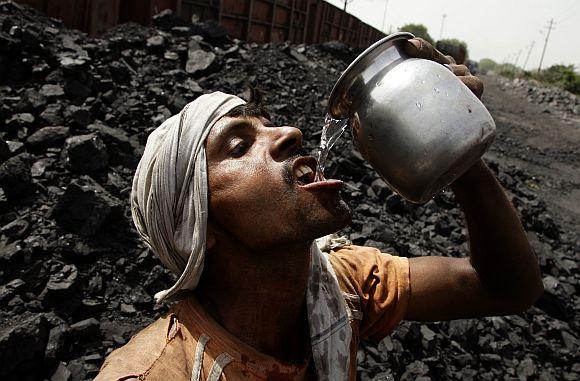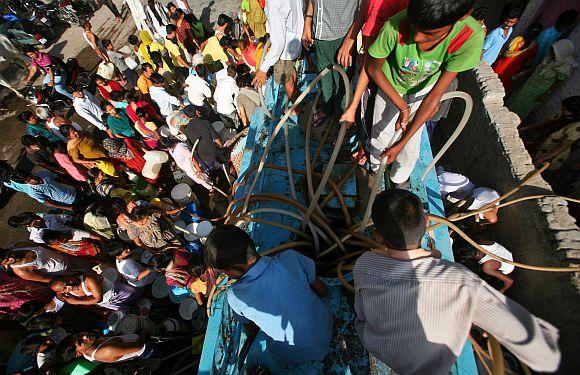The battles of yesterday were fought over land. Those of today are over energy. But the battles of tomorrow may be over water. Along with population growth and increasing per capita water consumption, massive pollution of the world's surface water systems has placed a great strain on remaining supplies of clean fresh water. Global deforestation, destruction of wetlands, dumping of pesticides and fertilizer into waterways, and global warming are all taking a terrible toll on the Earth's fragile water system, writes Dr Nitish Priyadarshi.
The combination of increasing demand and shrinking supply has attracted the interest of global corporations who want to sell water for a profit. The water industry is touted by the World Bank as a potential trillion-dollar industry. Water has become the "blue gold" of the 21st century.
In any part of the world, one major river supplies water to multiple countries. Climate change, pollution and population growth are putting a significant strain on supplies. In some areas renewable water reserves are in danger of dropping below the 500 cubic meters per person per year -- considered minimum for a functioning society.
In recent times, several studies around the globe show that climatic change is likely to impact significantly upon availability of freshwater resources. In India, demand for water has already increased manifold over the years due to urbanisation, agriculture expansion, increasing population, rapid industrialisation and economic development.
At present, changes in cropping and land-use patterns, over-exploitation of water storage and changes in irrigation and drainage are modifying the hydrological cycle in many climate regions and river basins of India.

Major cities worldwide may face a water shortage crisis by 2050 if relevant governments don't react quickly. The water shortage will mostly affect basic daily needs such as drinking, cooking, bathing and washing clothes, and the poor residents of the world's major cities in developing countries are the ones who will suffer most.
By 2050, big cities that will not have enough water available nearby include Beijing, New Delhi, Mexico City, Lagos and Tehran. China and India will be particularly hard hit unless significant new efforts are taken by their cities.
There are the several principal manifestations of the water crisis:
- Inadequate access to safe drinking water for about 884 million people in the world.
- Inadequate access to water for sanitation and waste disposal for 2.5 billion people.
- Groundwater over drafting (excessive use) leading to diminished agricultural yields.
- Overuse and pollution of water resources harming biodiversity.
- Regional conflicts over scarce water resources sometimes resulting in warfare.
Image: Residents fill their containers with drinking water from a tanker in New Delhi.
Photographs: Parivartan Sharma/Reuters

Geologist Dr Nitish Priyadarshi is presently associated with environmental management and planning, Department of Geology, Ranchi Universit

No comments:
Post a Comment